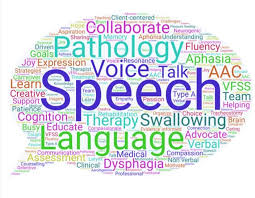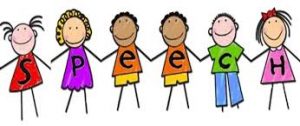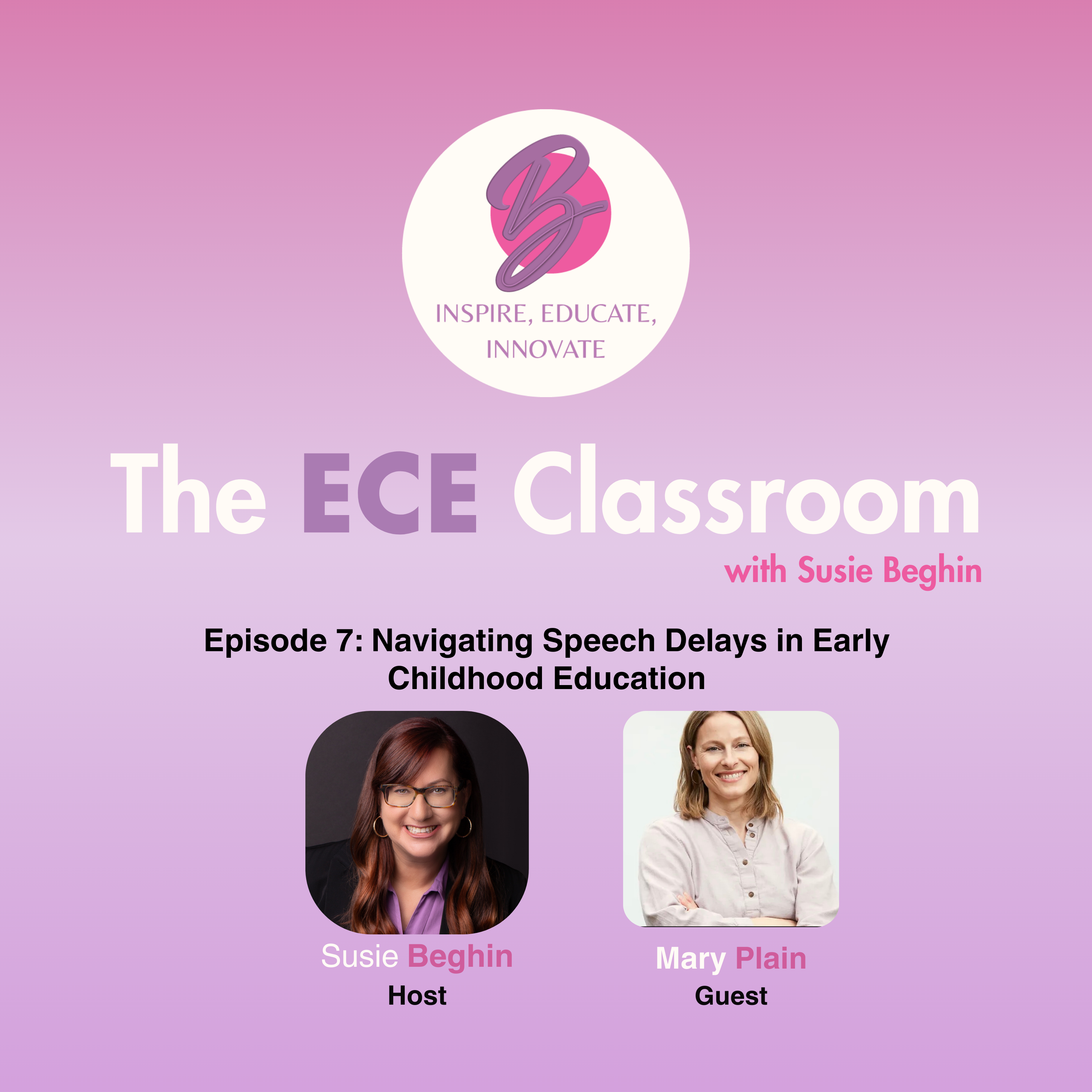Navigating Speech Delays in Early Childhood Education
The ECE Classroom – Episode 7- Navigating Speech Delays in Early Childhood Education
by Susie Beghin, RECE, Founder of Alpha’s Discovery Kids
In a recent episode of the ECE Classroom Podcast, I had the pleasure of speaking with Mary Plain, a dedicated speech and language pathologist from Hello Speech. Together, we explored some of the most important aspects of speech and language development in early childhood education. Our conversation was filled with valuable insights for parents, educators, and speech therapists alike, including early identification of speech delays, the benefits of intervention, and practical strategies for supporting young children’s language development.
Why Early Identification of Speech Delays Matters
One of the primary topics we covered was the critical importance of identifying speech delays early. Mary highlighted that some signs of speech and language delays can start to show as early as 18 months. When caught early, these delays are more easily addressed, often preventing potential difficulties down the road in both communication and academics. Early childhood is a crucial period of brain development and language acquisition, so recognizing and addressing delays early on can make a big difference in a child’s ability to thrive.
As educators and parents, we’re often in the best positions to observe these early signs, which makes understanding what to look for essential. Noticing if a child has limited vocabulary, difficulty following instructions, or struggles with using gestures to communicate can be the first step toward intervention that sets them up for future success.
 Understanding the Difference Between Speech and Language
Understanding the Difference Between Speech and Language
During our conversation, Mary clarified an important distinction that’s often overlooked: the difference between “speech” and “language.” While we sometimes use these terms interchangeably, they actually refer to separate aspects of communication. Speech is about the verbal sounds children make, while language includes both verbal and nonverbal communication skills—such as gestures, expressions, and comprehension.
This distinction is important for educators and parents to grasp, as it helps us to better understand and identify which areas of communication a child might need help with.
Destigmatizing Speech and Language Services
A key point that Mary emphasized was the need to destigmatize speech and language services. Many parents may feel hesitant or embarrassed about seeking help for their child, but speech services are beneficial for children across a range of developmental stages. There is a common misconception that speech therapy is only for children with severe challenges, but it can support various aspects of language development, even when delays are mild or just emerging.
One of our responsibilities as educators is to encourage open, empathetic conversations with parents about their child’s development. By normalizing speech services as a regular part of a child’s educational journey, we can make parents feel more comfortable seeking support and reinforce that early intervention is often in their child’s best interest.
 Strategies to Support Language Development
Strategies to Support Language Development
Mary provided several practical strategies for educators and parents to support language development, which I found especially helpful:
- Use Visual Aids: Picture cards, illustrated schedules, and other visual supports help children follow routines and understand instructions, especially if they’re struggling with receptive language.
- Model Gestures and Expressions: Using clear gestures and facial expressions helps children associate meaning with spoken words, enhancing their understanding of verbal communication.
- Encourage a Total Communication Approach: This approach emphasizes the use of any available communication methods—words, gestures, and visual aids—allowing children to express themselves in ways that feel natural to them.
- Promote Both Receptive and Expressive Language: Receptive language is about understanding spoken language, while expressive language is about sharing ideas. Activities like storytelling, following instructions, and encouraging children to describe their thoughts can help strengthen both areas.
- Foster Peer Interactions: Structured play and group activities encourage children to use both verbal and nonverbal communication, building confidence in their language abilities.
The Impact of Early Intervention and Collaboration
A major takeaway from this episode is that early intervention has a significant positive impact on children’s lives. When children receive support early, they’re more likely to hit developmental milestones, which in turn boosts their confidence, academic success, and social skills. Early intervention not only benefits the individual child but also enhances the classroom environment by promoting inclusive communication strategies.
Final Thoughts
My conversation with Mary Plain on the ECE Classroom Podcast underscored the profound role that speech and language development plays in early childhood education. By identifying speech delays early, implementing supportive strategies, and encouraging open discussions with parents, we can help children build a strong foundation in communication. Destigmatizing speech services and normalizing early intervention are steps that empower parents and educators to give children the support they need to thrive.
Stay tuned for more insightful discussions on early childhood education, parenting, and educator empowerment. Let’s continue to learn, grow, and make a difference in the lives of our students every day.
You can listen to the podcast on your favorite podcast platform, or by clicking here: https://open.spotify.com/show/7Hg7rTtRQggsVSCbbOdvP2?si=paCEPiCRRGK7yOfrTTsh8Q
Speech/Language: Does my child have speech delay?
 Is my child’s speech delayed? This seems to be a question that many parents are asking their daycare teachers in Mississauga and the surrounding area. More and more families are becoming aware of developmental delays and are being proactive in seeking help through daycare centres.
Is my child’s speech delayed? This seems to be a question that many parents are asking their daycare teachers in Mississauga and the surrounding area. More and more families are becoming aware of developmental delays and are being proactive in seeking help through daycare centres.
At Alpha’s Discovery Kids, there are a variety of highly trained Early Childhood Educators with experience and resources to support children ages 12 months to 5 years in all areas of development. Our philosophy centres around being an inclusive daycare environment to provide the best care for children at every stage of their development.
There are numerous resources online to educate yourself on “typical” child development but every child is different. Even as adults, we all have strengths and weaknesses but finding the right resources in order to develop our skills is an ongoing journey of development. In Mississauga and the Peel Region; there are several programs that can help you and your family with speech and language.
Many child development experts agree that the first step to developing your child’s speech and language is to seek a daycare environment that best suits your family. The daycare environment has so many opportunities for genuine peer and teacher interactions that can support your child’s language skills as well as their social interactions. The teachers are trained to provide experiences that allow your child to grow their language skills at their own pace.
The second step is to seek the advice of a resource consultant who can support you and your family at the daycare. In Mississauga, we are supported by a regional program called Peel Inclusive Resource Services (PIRS) which allow the educator and resource consultant to work directly with families to give families available resources, tips and advice to support the child to achieve speech and language goals.
Finally, it is a good idea to speak with your child’s doctor and seek a referral for your child to get a speech and language assessment by a speech and language pathologist. In the city of Mississauga, there are several free resources for every family to give their child the best start in life.

